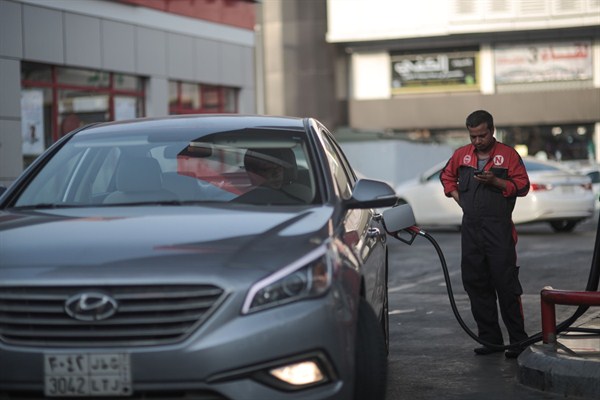For the first time, Saudi Arabia’s budget this year includes measures to gradually reduce subsidies on gasoline and other fuel, in response to declining oil revenue from the slump in global energy prices. The move, replicated in other Arab Gulf states, represents a fundamental challenge to the assumptions on which the region’s economy and political structure are based.
Since the beginning of the year, millions of Saudis have found it more expensive to drive to and from work each day. To people living outside the Gulf, the burden may not seem onerous. The cost at the pumps of higher-grade gasoline has increased from 16 cents per liter to just 24 cents and from 12 cents to 20 cents for lower grade gas. Diesel for trucks costs 12 cents per liter, up from just 7 cents. So by global standards Saudis can still fill up their cars without breaking the bank.
While the changes may not seem dramatic, in the context of Saudi Arabia and the other states of the Gulf Cooperation Council, or GCC—Bahrain, Kuwait, Oman, Qatar and the United Arab Emirates—they represent a revolution, turning on its head a convention that has underpinned the contract between rulers and ruled for decades. This contract, called into question by the collapse of global oil prices, implies that citizens’ basic material interests are taken care of by the state, in the form of generous subsidies and minimal taxation, in return for their non-participation in the process of governance.

